Advanced Reading and Writing Practice for Sat
Are y'all scoring in the 600-750 range on Saturday Reading + Writing? Do you want to raise that score as high every bit possible—to a perfect 800? Getting to a perfect Sabbatum Reading test score isn't easy. Information technology'll require perfection. But with hard work and my strategies below, you'll be able to practice it. I've consistently scored 800 on Reading on my real SATs, and I know what it takes. Follow my advice, and you'll get a perfect score—or get very close. Brief annotation: This article is suited for advanced students already scoring a 600 on SAT Reading or above (this equates to a Reading Test Score of xxx+ out of 40). If you lot're below this range, my "How to Improve your Sabbatum Reading Score to a 600" article is more appropriate for you lot. Follow the Saturday Reading tips in that article, then come back to this 1 when y'all've reached a 600. Likewise, the Saturday has a single 800 Reading + Writing score, combining the private Reading and Writing test scores. Technically, when I mention a perfect Reading test score, I'm referring to a perfect twoscore/forty test score, which is essential to getting an 800 Reading and Writing score. In this guide, I'll utilise 800 and 40 interchangeably to mean a perfect Reading score. Nosotros won't talk about Writing hither, but if you lot want to amend your Writing score too, check out my Perfect Sabbatum Writing score guide. Most guides on the internet on how to score an 800 are pretty low quality. They're oft written by people who never scored an 800 themselves. Yous can tell because their communication is usually vague and not very pragmatic. It's not enough to exist reminded of simple Reading tips similar "don't forget to guess on every question!" In contrast, I've written what I believe to be the best guide on getting an 800 available anywhere. I have conviction that these strategies work considering I used them myself to score 800 on SAT Reading consistently. They've too worked for thousands of my students at PrepScholar. In this article, I'1000 going to discuss why scoring an 800 is a good idea, what it takes to score an 800, and then go into the eleven key Sat Reading strategies and so you know how to get a perfect Saturday Reading score. Stick with me—every bit an advanced student, you lot probably already know that scoring high is expert. But it'south of import to know why an 800 Reading and Writing score is useful, since this will fuel your motivation to go a loftier score. This guide has been updated for the current Sabbatum, so you tin can be certain my advice works for the exam you're almost to take. Final note: in this guide, I talk mainly about getting to an 800. But if your goal is a 700, these strategies still equally utilise. Let's make something clear: a 1550+ on an Sat is equivalent to a perfect 1600. No top college is going to give you more credit for a 1590 than a 1550. You've already crossed their score threshold, and whether you lot get in now depends on the rest of your application. Then if you lot're already scoring a 1550, don't waste your time studying trying to get a 1600. You're already set for the acme colleges, and it'southward time to work on the residual of your application. But if yous're scoring a 1540 or below and you lot want to go to a tiptop 10 higher, it'south worth your fourth dimension to push your score up to a 1550 or above. In that location'south a big difference betwixt a 1450 and a 1550, largely considering it's easier to get a 1450 (and a lot more applicants practice) and a lot harder to get a 1550. A 1540 places you correct around average at Harvard and Princeton, and being average is bad in terms of Ivy League-level admissions, since the admissions charge per unit is typically below x%. Then why get an 800 on Sabbatum Reading+Writing? Because it helps you compensate for weaknesses in other sections. Mostly, schools consider your blended score more and then than your individual section scores. If you tin go a perfect xl in Saturday Reading, you can get a 39 in SAT Writing (for a total of 790 in Reading + Writing) and a 760 in SAT Math and still exist confident about your test scores. This gives y'all a lot more than flexibility. Harvard'southward 75th percentile Reading score is 780. There's another scenario where an 800 in Sabbatum Reading is actually of import. If you're planning to apply every bit a humanities or social science major (similar English, political science, communications) to a top school. Hither'southward the reason: college admissions is all almost comparisons between applicants. The schoolhouse wants to admit the best, and you lot're competing with other people in the same "bucket" as you lot. By applying as a humanities/social science major, you're competing against other humanities/social scientific discipline folks: people for whom Saturday Reading is like shooting fish in a barrel. Really piece of cake. Hither are a few examples from schools. For Harvard, Princeton, Yale, and U Chicago, the 75th percentile SAT Reading score is a 770 or above. That means at least 25% of all students at these schools accept a 770 in SAT Reading. Only if you can work your way to an 800, you show that you're at an equal level (at least on this metric). Fifty-fifty if information technology takes you a ton of work, all that matters is the score you lot accomplish at the cease. I'll be honest—SAT Reading wasn't my strong accommodate in high schoolhouse. When I started studying, I was scoring around the 700 range. I was always stronger in math and scientific discipline. Merely I learned the tricks of the examination, and I adult the strategies below to enhance my score to an 800. At present I'1000 sharing them with you. This isn't but some fuzzy feel-good message you meet on the back of a Starbucks cup. I mean, literally, you and every other reasonably intelligent educatee can score a perfect Sat Reading score. The reason nigh people don't is they don't try difficult plenty or they don't study the correct way. Even if language isn't your strongest suit, or you got a B+ in AP English, you're capable of this. Because I know that more than anything else, your SAT score is a reflection of how hard you piece of work and how smartly yous study. Here'southward why: the Sat is a weird test. When yous take information technology, don't you become the sense that the questions are nothing like what yous've seen in school? I bet you've had this problem: in Saturday Reading passages, you ofttimes miss questions because of an 'unlucky guess.' Yous'll endeavour to eliminate a few reply choices, and the remaining answer choices will all sound every bit good to you. Well, you throw up your hands and randomly guess. This was one of the major issues for myself when I was studying Sat Reading, and I know it affects thousands of my students at PrepScholar. The Sabbatum is purposely designed this way to confuse you lot. Literally millions of other students have the exact aforementioned trouble y'all practise. And the Sat knows this. Normally in your schoolhouse's English class, the teacher tells you that all interpretations of the text are valid. Y'all can write an essay about annihilation yous want, and English language teachers aren't (ordinarily) allowed to tell yous that your opinion is incorrect. This is because they can get in problem for telling you what to think, peculiarly for complex issues similar slavery or poverty. But the Saturday has an entirely unlike trouble. Information technology's a national test, which means it needs a level playing field for all students around the country. It needs a solid examination to compare students with each other. Every question needs a single, unambiguously, 100% right answer. There'southward only ever 1 correct answer. Discover a style to eliminate 3 incorrect answers. Imagine if this weren't the case. Imagine that each reading answer had two answer choices that might each be plausibly right. When the scores came out, every single pupil who got the question wrong would complain to the College Board almost the test being incorrect. If this were true, the College Board would then accept to invalidate the question, which weakens the power of the test. The College Board wants to avoid this nightmare scenario. Therefore, every unmarried Reading passage question has only one, unmarried right answer. Simply the Sat disguises this fact. It asks questions like: Notice a pattern hither? The SAT always disguises the fact that at that place's always one unambiguous answer. It tries to Make you waver betwixt two or iii answer choices that are well-nigh probable. Then yous guess randomly. And and so you get it wrong. Yous can bet that students autumn for this. Millions of times every year. Students who don't ready for the SAT in the right way don't capeesh this. Merely, if you lot prepare for the SAT in the right style, you'll learn the tricks the SAT plays on you. And you'll heighten your score. The SAT Reading section is full of patterns similar these. To improve your score, you just demand to: The point is that y'all can acquire these skills, even if you lot don't consider yourself a good reader or a keen English educatee. I'll get into more than item about exactly how to do this. One final point: allow's make certain nosotros understand how many questions we can miss to score an 800. If we take a target score in mind, it helps to understand what yous need to get that score on the actual test. At that place are 52 questions in the Reading section, and how many questions you lot miss determines your scaled score out of 40. From the Official Sat Practice Tests, I've taken the raw score to scaled score conversion tables from four tests. (If you could utilise a refresher on how the SAT is scored and how raw scores are calculated, read this.) These grading scales are harsh. For tests 2 and four, if you lot miss just ane question, you go dropped down to a 39. This means your maximum Reading + Writing score is a 790. For tests 1 and 3, if you miss 1 question, you're still at a perfect 40, but miss another and you driblet downwardly to a 39. The scoring chart curve depends on the difficulty of the exam. The harder the exam, the easier the curve. But you can't predict what kind of test you're going to get on exam day. The safest thing to practise is to aim for perfection. On every exercise examination, you lot need to aim for a perfect raw score for an 800. Any you're scoring now, take note of the departure you need to get to a 800. For example, if you're scoring a 35 raw score, you need to answer half-dozen to seven more than questions right to get to a perfect xl and an 800. As a final example, here'due south a screenshot from my exact score report from March 2014, showing that I missed one question and earned an 800. (This was from the previous 2400 version of the SAT, but it had a similar grading scale). OK—then we've covered why scoring a higher Reading score is of import, why you specifically are capable of improving your score, and the raw score you demand to get to your target. Now nosotros'll get into the meat of the commodity: actionable strategies and reading tips that you should use in your own studying to maximize your score improvement. What's your greatest weakness? Every student has different flaws in Sat Reading. Some people don't accept practiced strategies for tackling the passage questions. Others don't manage their fourth dimension correctly and run out of time earlier getting through all the questions. Hither's how you tin figure out which 1 applies more to yous: Go what we're doing here? By marking which questions you did under Extra Time, nosotros tin figure out what score yous got if you were given all the time you needed. This volition help us figure out where your weaknesses lie. If you didn't take any actress time, so your Extra Time score is the same every bit your Realistic score. Hither's a flowchart to help you figure this out: Was your Extra Time score a 35 or higher up? If NO (Extra Fourth dimension score < 35), then you lot have strategy and content weaknesses. All the actress time in the earth couldn't become you above a 35, so your offset angle of assault will be to detect your weaknesses and assail them (We'll embrace this later). If Yep (Extra Time score > 35), then: Was your Realistic score a 35 or higher up? If NO (Extra Fourth dimension score > 35, Realistic < 35), then that means you have a difference between your Extra Time score and your Realistic score. If this deviation is more three points, so you have some big problems with fourth dimension management. We demand to figure out why this is. Are you lot using the all-time passage reading strategy for you? Does it take yous also much time to get the answer for each question? Mostly, doing a lot of practice questions and learning the most efficient passage strategies will help reduce your time. More than on this subsequently. If Aye (both Extra Time and Realistic scores > 35), so you accept a really good shot at getting an 800. Compare your Actress Time and Realistic score—if they differed by more than 2 points, and then you would do good from learning how to solve questions more quickly. If non, then y'all likely tin benefit from shoring up on your last content weaknesses and avoiding careless mistakes (more on this strategy later). Hopefully that makes sense. Typically I see that students take both timing and content issues, but you lot might observe that i is much more dominant for you than the other. For instance, if you tin can get a twoscore with actress time, but score a 35 in regular time, you know exactly that you need to work on time direction to become a xl. This blazon of analysis is and then of import that it'southward a primal part of my prep programme, PrepScholar. When a new student joins, he or she gets a diagnostic that figures out specific strengths and weaknesses. The program then automatically customizes your learning so that you're always studying according to where you can make the almost improvement. No matter what your weakness is, my following strategies volition address all weaknesses comprehensively. This strategy was by far the most effective for me in raising my Reading score. It completely inverse the way I viewed passage questions. I spent some time talking to a higher place about how the SAT e'er has i unambiguous reply. This has a huge implication for the strategy you should use to find the right SAT Reading answer. Here's the other way to see it: Out of the four answer choices, iii of them accept something that is totally wrong about them. Only 1 answer is 100% correct, which means the other 3 are 100% wrong. You know how you try to eliminate answer choices, so end upwards with a few at the end that all seem as likely to be correct? "Well, this can piece of work...merely then again this could work every bit well..." Terminate doing that. You're non doing a practiced enough chore of eliminating answer choices. Remember—every single incorrect choice tin can be crossed out for its own reasons. You need to do a 180 on your approach to Reading questions. Instead, find a reason to eliminate three reply choices. "Can I observe a reason to eliminate this respond choice? How about this one?" Yous have to learn how to eliminate three answer choices for every unmarried question. "Great, Allen. But this doesn't tell me anything about how to eliminate answer choices." Cheers for asking. One affair to remember is that even a single word can make an respond choice wrong. Every single word in each answer pick is put at that place past the Saturday for a reason. If a single word in the answer choice isn't supported by the passage text, you need to eliminate it, even if the rest of the reply sounds good. There are a few classic wrong answer choices the Saturday loves to utilize. Here'due south an example question. For example, let'south imagine you just read a passage talking near how human evolution shaped the environment. Information technology gives a few examples. Showtime, it talks nearly how the transition from earlier species similar Homo habilus to neanderthals led to more tool usage like burn down, which caused wildfires and shaped the ecology. It then talks near Homo sapiens 40,000 years ago and their overhunting of species like woolly mammoths to extinction. And then and so nosotros encounter a question asking, "Which of the following best describes the main field of study of the passage?" Here are the respond choices: (Nosotros're using five answers for purposes of illustration—the Sabbatum will merely have iv choices). Equally you're reading these answer choices, a few of them probably started sounded really plausible to you. Surprise! Each of the answers from A-D has something seriously wrong about it. Each one is a classic case of a incorrect respond type given by the SAT. A: The transition betwixt Homo habilus and neanderthals This blazon of wrong answer focuses on a smaller item in the passage. It's meant to fox you considering you might think to yourself, "well, I see this mentioned in the passage, then it'due south a plausible answer selection." Wrong! Think to yourself—can this answer choice actually describe the entire passage? Can information technology basically part as the title of this passage? You'll observe that it'southward just way too specific to convey the betoken of the overall passage. B: The study of evolution This type of incorrect answer has the opposite trouble—it's way also wide. Yes, theoretically the passage concerns the study of development, simply merely one attribute of it, and particularly as information technology relates to the bear on on the surroundings. To requite another ludicrous instance, if you talked to your friend virtually your prison cell telephone, and he said your main point was near the universe. Yeah, you lot were talking nigh the universe, but merely a tiny fraction of it. This is way too broad. C: How the surround shaped human evolution This wrong answer selection can be tricky because it mentions all the right words. But of course the human relationship betwixt those words needs to be correct besides. Hither, the relationship is flipped. Students who read likewise chop-chop make devil-may-care mistakes like these! D: The plausibility of development Finally, this kind of wrong answer preys on the tendency of students to overthink the question. If y'all're passionate well-nigh arguing about evolution, this might be a trigger answer since any discussion of development becomes a take a chance to argue about the plausibility of evolution. Of course, this concept will appear nowhere in the passage, only some students just won't be able to resist. Exercise you run across the indicate? On the surface, each of the reply choices sounds possibly right. A less prepared pupil would call back that all of these were plausible answers. But plausible isn't good plenty. The right answer needs to exist 100%, totally right. Incorrect answers might exist off by even one word—y'all need to eliminate these. Carry this thought into every SAT Reading passage question y'all practice and I guarantee you will starting time raising your score. As nosotros've discussed already, the Sat is designed to goad y'all into making mistakes past putting actually like answer choices next to each other. In Strategy 2, nosotros covered the strategy of ruthless, unforgiving elimination of answer choices. Hither's another Strategy that works well for me. Before reading the respond choices, come up up with your ain answer to the question. Gaze into your crystal ball and predict the right answer. This strategy is exactly designed to annul the trickiness of the reply choices. If yous don't employ this strategy, your thinking procedure probable meanders like this: "OK, I just read the question. Answer A is definitely out. B can kind of work. C...it doesn't exactly fit, but I can see how it might piece of work." and then on. By now, you've already fallen into the Higher Board'southward trap of muddling the respond choices. Take the opposite approach. While you're reading the question, come upwards with your own ideal respond to the question before reading the answer choices. This prevents yous from getting biased past the Saturday's answer choices, especially the wrong ones. If information technology's a "Big Picture" blazon question request about the primary point of the passage, answer for yourself, "What would brand a good title for this passage?" If it'southward an "Inference" question, answer for yourself, "What would the writer think most the state of affairs given in the question?" Even if y'all can't answer the question straight away—for case, if yous have to refer back to the line number to call back what the passage was proverb—endeavour to solve the question before looking at the answer choices. The key here is that the passage must support your answer choice. Every right respond on SAT passages needs to be justified by the passage—otherwise the answer would be ambiguous, which would cause bug of cancelling questions I referred to before. Warning: this merely works if y'all tin can read and empathize passages well, and if yous have prior feel with Sabbatum Reading questions! That'south why I don't recommend this strategy even so earlier you hit a 600 level since yous're more likely to come up up with the wrong reply pick in your caput. In your prep for the Sat, you may take read different strategies for how to read a passage and respond questions. Some students read the questions before reading the passage. Others read the passage in detail first. At your high level, I can't predict which method will work best for you lot. Nosotros're going for perfection, which ways that your strategy needs to line upward with your strengths and weaknesses perfectly, or else you'll brand mistakes or run out of time. What I will practise, withal, is go through the nigh effective methods. You'll then have to figure out through your test data which one leads to the highest score for you. This is the most mutual strategy I recommend to our students, and in my eyes the most effective. I prefer this one myself. Here it is: My preferred style to tackle a passage: skimming it on the first read-through. This strategy is a revelation for students who used to shut-read a passage and run out of time. This skimming method works because the questions will ask almost far fewer lines than the passage really contains. For case, lines v-20 of a reading passage might not be relevant to any question that follows. Therefore, if you spend time trying to deeply understand lines five-20, you lot'll exist wasting time. By taking the opposite approach of going back to the passage when you demand to refer to it, you guarantee reading efficiency. You're focusing only on the parts of the passage that are important to answering questions. Disquisitional Skill: You must be able to skim effectively. This means being able to rapidly digest a text without having to slowly read every give-and-take. If you're not quite adept at this yet, practise it on newspaper articles and your homework reading. This is the second most common strategy and, if used well, as constructive as the offset method. Simply it has some pitfalls if you don't do information technology correctly. Hither'southward how it goes: Here's an instance passage that I marked upward, with questions coming kickoff. Notice that across underlining the phrase referenced in the question, I left clues for myself on what's important to get out of this phrase. (questions not relating to specific lines aren't shown above) In the hands of an SAT skillful, this is a powerful strategy. Simply like Method 1 above, you save time past skipping parts of the passage that aren't asked about. Furthermore, you go a head start on the questions by trying to reply them beforehand. But there are serious potential pitfalls to this method if yous're not conscientious or prepared enough. Here'due south i: when you kickoff read the questions before the passage, you won't take enough fourth dimension to digest the actual answer choices (nor will they make sense to you lot). So you take to make your all-time approximate for what the question is asking when you're writing a note along the passage. In some cases, this tin can lead you astray. Take this example from to a higher place: When I read the question, I saw that information technology asked me to discover how Woolf characterized the questions I marked in lines 53-57. The problem is how wide the question is. How something can be characterized gives a wide range of options. Here are a number of plausible characterizations as I read the text: There'due south a lot of flexibility in interpretation here, since the questions really do touch upon all these characterizations. It turns out "important" and "urgent" are the right interpretations, for answer choice C. But when I'm reading the passage and run across my notation, I tin waste material a lot of time coming up with potential options that aren't even correct answer choices. In the worst example, information technology can bias me toward the wrong answer. Critical Skill: You lot need to have so much experience with the SAT Reading section that you tin can conceptualize what the question is going to ask you for your notes to be helpful. If you're non sure of this, you can hands exist led down the wrong track and focus on the wrong aspect of the passage. This method is what beginner students usually utilize by default, because it'south what they've been trained to exercise in school. Some beginner books like Princeton Review and Kaplan as well advise this as a strategy. It's my least favorite method because at that place are so many means for it to go wrong. Just for the sake of completeness, I'm listing it here in instance it works best for you. Hither'due south how it goes: As y'all might guess, I don't similar this method for the following reasons: But this might work especially well for you if you lot're very good at reading for understanding, and if you have so much expertise with the SAT that you can predict what the test is going to inquire yous about anyway. Because I tin can't predict which i will work best for you, you demand to figure this out yourself. To do this, y'all need cold, hard data from your examination scores. Try each method on two sample test passages each, and tally up your percentage score for each. If one of them is a clear winner for you, then develop that method further. If there isn't a articulate winner, choose the one that feels nearly comfortable for you. As function of our PrepScholar plan, we give y'all avant-garde statistics on your score operation so that yous tin can experiment with methods that piece of work all-time for you. Next strategy: Empathise your mistakes. On the path to perfection, you need to brand sure every single 1 of your weak points is covered. Fifty-fifty only i mistake volition knock yous down from an 800, every bit we saw in the score charts above. The first step is simply to do a ton of practice. If y'all're studying from free materials or from books, you take access to a lot of exercise questions in bulk. As office of our PrepScholar program, nosotros accept over 7,000 SAT questions customized to each skill. The second step—and the more than important part—is to be ruthless about agreement your mistakes. Every mistake you brand on a exam happens for a reason. If yous don't understand exactly why yous missed that question, you will make that mistake over and over again. I've seen students who did xx practice tests. They've solved over 3,000 questions, only they're still nowhere virtually a perfect SAT Reading score. Why? They never understood their mistakes. They just striking their heads confronting the wall over and over over again. Think of yourself every bit an exterminator, and your mistakes are cockroaches. You need to eliminate every single 1—and find the source of each one—or else the restaurant you work for will exist shut down. Here's what you lot demand to exercise: Information technology's non enough to simply think about information technology and move on. It's not enough to just read the respond explanation. You lot have to think difficult about why yous specifically failed on this question. By taking this structured approach to your mistakes, you'll now take a running log of every question you lot missed, and your reflection on why. No excuses when it comes to your mistakes. Now, what are some common reasons that y'all missed a question? Don't just say, "I didn't get this question right." That'due south a cop out. Always take it one step further—what specifically did you miss, and what exercise you lot have to meliorate in the futurity? Hither are some examples of common reasons you miss a Reading question, and how you take the analysis one step farther: Elimination: I couldn't eliminate enough incorrect reply choices, or I eliminated the correct answer. One step further: Why couldn't I eliminate the answer choice during the exam? How tin can I eliminate answer choices like this in the future? Careless Error: I misread what the question was asking for or answered for the wrong matter. Ane pace farther: Why did I misread the question? What should I do in the future to avoid this? Vocab: I didn't know what the fundamental give-and-take meant. 1 step farther: What word was this? What is the definition? Are there other words in this question I didn't know? Go the thought? You're really excavation into understanding why you're missing questions. Yes, this is hard, and it's draining, and information technology takes work. That's why most students who study ineffectively don't improve. Many people don't know the right way to study. Of the people who do, very few volition diligently apply the correct methods, solar day in, and twenty-four hours out, with discipline. Merely you're different. Only by reading this guide, you're already proving that you care more than than other students. And if you lot apply these principles and clarify your mistakes, y'all'll improve more other students too. Reviewing mistakes is so important that in PrepScholar, for every 1 of our 7,000+ practice questions, we explain in detail how to get the correct answer, and why incorrect answers are wrong. Nosotros also point out bait answers and so that you tin you tin can learn the tricks that the SAT plays on exam takers like you lot. When you're reviewing practice questions, the first thing you probably do is read the answer explanation and at nearly reflect on it a footling. This is a fiddling also like shooting fish in a barrel. I consider this passive learning—you're non actively engaging with the fault y'all fabricated. Instead, try something unlike—discover the correct answer choice (A-D), but don't await at the explanation. Instead, try to re-solve the question once over again and try to get to the correct answer. This volition oftentimes exist hard. You lot couldn't solve it the first time, so why could you lot solve it the second time around? But this fourth dimension, with less time pressure, you lot might spot a new reason to eliminate the wrong answer choice, or something else will pop upward. Something volition just "click" for you. When this happens, what you lot learned will stick with you for 20 times longer than if you merely read an respond caption. I know this from personal experience. Because you lot've struggled with information technology and reached a breakthrough, you retain that information far better than if you but passively captivated the data. This is perfect for Saturday Reading because you'll oftentimes miss a question because of an incorrect estimation of the text. By forcing yourself to become the correct answer, yous'll practice getting the right estimation of the text. Even better, yous'll exist scrounging the passage for clues every bit to why the correct answer is right, which is exactly what y'all need in your passage strategy to begin with. Information technology'southward too easy to just read an reply explanation and have it go in ane ear and out the other. You won't actually acquire from your mistake, and you'll make that mistake over and once again. Care for each incorrect question like a puzzle. Struggle with each wrong respond for up to ten minutes. Only and then if you don't get it should you read the answer explanation. Reading passage questions might look like, but they actually test very dissimilar skills. At PrepScholar we believe the major passage skills to be: Whew—that'due south a lot of skills. That's a much more detailed breakdown than what appears at offset glance, and what most books and courses offering. Each of these question types uses different skills in how you lot read and clarify a passage. They each require a unlike method of prep and focused practise. The Sabbatum requires a lot of skills. Make sure yous know which ones are your weaknesses. If you lot're similar virtually students, you're better at some areas in Reading than others. You might be ameliorate at getting the Big Picture of a passage, compared to the Inference. Or you might be really stiff in vocabulary, but weak in understanding the part of sentences in a passage. If you're like most students, you too don't have an unlimited amount of fourth dimension to written report. This means for every hour y'all study for the Saturday, it needs to be the virtually effective 60 minutes possible. In physical terms, you lot need to detect your greatest areas of improvement and work on those. Too many students study the 'dumb' manner. They merely purchase a volume and read information technology comprehend to cover. When they don't improve, they're shocked. I'm non. Studying effectively for the Sabbatum isn't similar painting a house. Y'all're not trying to cover all your bases with a very thin layer of understanding. What these students did wrong was they wasted fourth dimension on subjects they already knew, and they didn't spend plenty time on their weaknesses. Instead, studying effectively for the SAT is like plugging upward the holes of a leaky gunkhole. You need to find the biggest hole, and fill up information technology. Then you find the adjacent biggest hole, and you fix that. Soon you'll find that your boat isn't sinking at all. How does this chronicle to Sabbatum Reading? You need to find the sub-skills that you lot're weakest in, and then drill those until y'all're no longer weak in them. Gear up upwardly the biggest holes. Within reading, you need to effigy out whether you have patterns to your mistakes. Is information technology that you don't become Inference questions? Or perchance you lot're really weak at interpreting details? Or from strategy 1: is it that you're running out of time in reading passages? For every question that you miss, you need to identify the type of question it is. When you detect patterns to the questions y'all miss, yous then demand to find actress practise for this subskill. Say you miss a lot of inference questions (this is typically the hardest blazon of question for students to become). Yous demand to find a manner to get focused practice questions for this skill so you can drill your mistakes. Bonus: If all of this is making sense to you, you'd love our SAT prep programme, PrepScholar. We designed our program around the concepts in this article, because they actually work. When you first with PrepScholar, you'll take a diagnostic that will determine your weaknesses in over forty Sabbatum skills. PrepScholar and then creates a study program specifically customized for you. To amend each skill, you'll take focused lessons defended to each skill, with over xx practice questions per skill. This will train yous for your specific surface area weaknesses, so your fourth dimension is e'er spent near effectively to heighten your score. We also force you to focus on understanding your mistakes and learning from them. If you make the aforementioned error over and over once more, we'll telephone call y'all out on it. There'southward no other prep system out there that does it this fashion, which is why we go amend score results than whatever other program on the market. Cheque it out today with a 5-twenty-four hour period gratuitous trial: Saturday Costless Signup This is a quick tip that many students ignore. Each passage comes with an italicized introduction, like this for the passage shown above: This is a freebie. It gives you context for the entire passage. By knowing that the passage is about "the situation of women in English language society," you lot hit the ground running when y'all read the very first judgement. This helps a lot. Sometimes, the introduction solitary tin requite yous the respond for the "Large Picture" question about what the main point of the passage is. Always always brand sure that you read this introduction, no matter what passage method y'all employ from Strategy 4. The SAT has passages about a lot of weird topics. Victorian novels, underwater basket-weaving, and the evolution of gerbils are all off-white game. It's unlikely that yous're naturally thrilled about all the subjects y'all'll read about. This makes it piece of cake to tune out when you lot're reading the passage. This makes it harder to respond the questions, which volition make yous more frustrated. Instead, prefer this mindset: For the adjacent 10 minutes, I am the world's nigh passionate person nigh whatever subject this passage is most. This passage is the well-nigh frickin' exciting thing I could be reading correct at present. For every single passage, exist as excited equally she is. Force yourself to care almost what the passage is telling yous. Pretend that your life depends on understanding this passage. Maybe you're nigh to give a lecture on this subject. Or someone's holding a puppy hostage if y'all don't answer enough questions correctly. Or your crush turns out to exist a huge mid-18th century English language literature fan, then you pay rapt attention to every single word. When I was preparing for the Saturday in high school, I took this and then far to the extreme that I concluded up genuinely fascinated by whatever the passage was telling me about. I think reading a passage about volcanic activity and thinking, "Wow, I'm really glad I just learned this." (I know this sounds crazy.) If you stay engaged while reading, yous'll empathise the passage so much better, and you'll answer questions with way more accuracy. Vocab typically gets way besides much attention from students. Information technology feels good to study vocab flashcards, because it seems like you're making progress. "I studied 1,000 vocab words—this must hateful I improved my score!" This is why other exam prep programs love pedagogy y'all vocab—it feels like they're teaching you something useful worth your money, just it's non obvious that vocab really isn't helping your score. Fortunately, vocab doesn't play a big role in your SAT Reading score anymore. This is especially true in the current SAT. They've completely taken out Sentence Completion questions, and the words that you lot accept to analyze in context are usually pretty common. Here are examples of words that you need to sympathize in context in the current Sat: These are somewhat advanced words, but they're nowhere near the level of the words you lot used to take to know, like "baroque," "diatribes," "platitudes," and "progenitor." College Lath lowered the emphasis on vocab considering of complaints that memorizing esoteric vocab was useless in higher success and career success. Instead, information technology'due south now asking yous to figure out the meaning of more than common words the manner the author intended. For example, "plastic" can mean "malleable," "bogus," or "sculptural." But one of these is right in the context of the passage. This doesn't mean that vocab is totally useless. For one, Sat Writing withal has a few vocab questions (read more than about this in my Perfect SAT Writing guide). Furthermore, sometimes knowing the definition of the words in context is helpful. Here are a few tips on what to learn, and how to larn vocab effectively. First, I've written a super detailed guide on the best style to study SAT vocabulary. This method makes your studying much more efficient so y'all retain words longer and engage with the most hard vocab most ofttimes. 2d, y'all need to accept notes on vocab words that you don't know that y'all run into in your practice questions. Don't just focus on the right answers—sympathize the definition of wrong answers as well. Just accept notes from official SAT tests. It'southward hard to predict what words the Sat will utilize, and the Sabbatum doesn't ofttimes repeat words from previous tests. But the official free practice tests from the Official Study Guide that we integrate in our PrepScholar program are the best sources. Over the many years I've studied for tests or run a test prep company, I've heard this advice for Sat Reading: "Read neat novels and well-written magazines, like in the New York Times or the Atlantic. This will help with reading comprehension." I detest this advice. A test like SAT Reading is very specific. It tests reading comprehension in very specific and formulaic ways, equally I showed with all the question types in Strategy three. Reading for general leisure does Non railroad train you effectively for the test. You're non exercising the same skills y'all need on the test, nor is it goal-driven enough to aid you brand progress. This terrible communication is like proverb yous tin can train for a swim come across past standing in the shower for longer. Aye, by being in the shower, you'll be in h2o, only like you will in the swimming pool. Only y'all're not using the aforementioned skills. Aye, if you lot have a lifetime of stiff reading, with thousands of hours of leisure reading feel, y'all will do better on Sat Reading. But correct now, reading full general material won't assist y'all efficiently. Take your extra time and practise SAT Reading practice questions instead. Your goal at the stop of all this work is to get then good at Saturday Reading that you solve every question and accept extra time left over at the end of the section to recheck your work. In high schoolhouse, I was able to terminate a Reading section in nearly 60% of the time allotted. For Sabbatum Reading, this means finishing all passages and 52 questions in xl minutes. This means I have a whopping 25 minutes left over to recheck my answers ii times over. How did I get so fast? #1: I accept an efficient reading strategy that works all-time for me. Namely, I skim the passage and work through the questions afterward. #ii: Through a lot of hard work, I have a stiff instinct for the test. I sympathise the examination then well that when I read a question, I can predict the reply within a few seconds. I can dominion out wrong answers instantly considering they only experience wrong. I've surveyed thousands of questions and understood every unmarried SAT skill deeply to design PrepScholar, and so I can typically understand exactly what the College Lath is asking. Here are some fourth dimension benchmarks that might help: If you lot tin can do this well, you lot'll finish the entire department in 40 minutes, leaving a lot of time to double check. What's the all-time fashion to double check your work? I have a reliable method that I follow: If yous notice yourself spending more than thirty seconds on a trouble and aren't articulate how you lot'll get to the reply, skip and go to the adjacent question. Even though you need a near perfect raw score for an 800, don't be agape to skip. You can come up back to information technology later, and for at present it's more important to get every bit many points every bit possible. Hither'south a bubbles tip that will save y'all two minutes per department. When I showtime started test taking in high school, I did what many students do: afterward I finished one question, I went to the bubble sheet and filled information technology in. Then I solved the next question. Stop question ane, bubble in answer ane. Finish question 2, bubble in answer 2. And so forth. This actually wastes a lot of time. You're distracting yourself betwixt two distinct tasks—solving questions, and bubbling in answers. This costs you lot time in both mental switching costs and in physically moving your hand and eyes to different areas of the test. Hither's a better method: solve all your questions first in the book, then chimera all of them in at once. This has several huge advantages: y'all focus on each task one at a time, rather than switching between ii different tasks. You also eliminate careless entry errors, like if yous skip question vii and chimera in question 8'south answer into question 7's slot. Past saving just ten seconds per question, y'all get back 200 seconds on a section that has 20 questions. This is huge. Note: If you use this strategy, y'all should already be finishing the section with aplenty extra time to spare. Otherwise, you might run out of time earlier you have the take chances to bubble in the answer choices all at once. Now you know what it takes to reach perfection in Sabbatum Reading. You know the best strategies to use for tackling the passage. Yous know how to identify your weaknesses and learn from them. You know how to save time, and you know to stay engaged while reading a passage. Even despite all this, sometimes a passage just won't click with you. Of all Sabbatum sections, I find that Reading has the most volatile score. How you lot vibe with a passage has a big impact on your score. Yous might go a string of questions wrong just because you couldn't actually empathise what the passage was actually most. This doesn't happen on Math or Writing. No affair what happens, you demand to keep calm and keep working. You might swing from an 800 on ane practice examination to a 710 on another. Don't let that faze you lot. Don't beginning doubting all the difficult piece of work yous've put in. Keep a calm caput, and, like ever, work hard on reviewing your mistakes. This might fifty-fifty happen on the real SAT. You might get beneath your target score and be crestfallen. Pick yourself up. This happens. If you've consistently been getting 800'southward on practise tests, you should take the examination again and endeavor to score higher. Very likely, y'all will. And considering nigh schools nowadays superscore the Sat, you can combine that new 800 with your other sections for an awesome Sat score. Those are the main strategies I have for you to amend your Saturday Reading score to an 800. If you're scoring in a higher place a 600 correct now, with hard piece of work and smart studying, you can raise it to a perfect Sabbatum Reading score. Even though we covered a lot of strategies, the main point is even so this: you need to sympathise where you're falling brusk, and drill those weaknesses continuously. Yous need to exist thoughtful near your mistakes and get out no mistake ignored. Here's a epitomize of all the strategies, in case you lot want to go dorsum and review any: Proceed reading for more resources on how to boost your SAT score. We have a lot more useful guides to raise your SAT score. Read our complete guide to a perfect 1600, written past me, a perfect scorer. Read our accompanying guide to a 800 on SAT Math. Learn how to write a perfect-scoring 12 Saturday essay, step by stride. Want to improve your Sat score by 160 points? We have the industry's leading Sabbatum prep program. Built past Harvard grads and SAT total scorers, the program learns your strengths and weaknesses through avant-garde statistics, and so customizes your prep program to you so yous get the most effective prep possible. I congenital the PrepScholar program based on the principles in this commodity—the principles that worked for me and thousands of our students. I'm confident they'll also piece of work with you. Check out our five-24-hour interval free trial today: 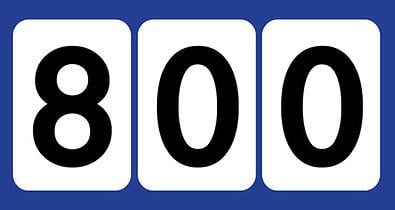
Overview
Empathize the Stakes: Why an 800 SAT Reading + Writing?


Know That You Tin Do It
Sabbatum Reading is Designed to Trick Y'all. You Demand to Learn How

What It Takes to Become a Perfect 40 in Reading
Raw Score Exam 1 Test 2 Test 3 Test 4 52 40 forty xl xl 51 40 39 40 39 50 39 38 39 39 49 38 37 38 38 48 38 37 38 37 47 37 36 37 36 46 37 35 36 35 45 36 35 36 35 
Strategies to Go a Perfect Sabbatum Reading Score

Strategy 1: Understand Your Loftier Level Weakness—Time Management or Passage Strategy?
Strategy 2: Learn to Eliminate 3 Wrong Answers


Incorrect Respond i: Too Specific

Wrong Answer 2: Also Broad
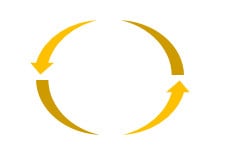
Wrong Answer three: Reversed Relationship

Wrong Reply 4: Unrelated Concept
Strategy 3: Predict the Answer Earlier Reading the Answer Choices


Strategy 4: Experiment With Passage Reading Strategies and Notice the Best for You
Passage Method 1: Skim the Passage, And so Read the Questions
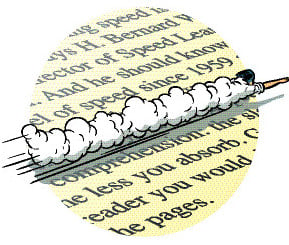
Passage Method 2: Read the Questions Get-go and Mark the Passage




Passage Method 3: Read the Passage in Particular, And so Reply Questions
Choose Which Works All-time for You lot, Based on Examination Data

Strategy five: Understand Every Single Error You Make
#1: the gist of the question
#2: why you missed it, and
#iii: what you'll practise to avoid that mistake in the futurity.
Have dissever sections past question type (vocab questions, big picture questions, inference questions, etc).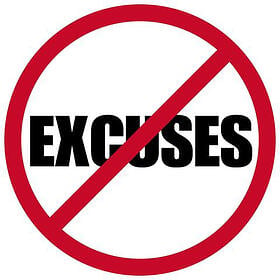
Always Go Deeper—Why Did You Miss a Reading Question?

Bonus Tip: Re-Solve the Question Before Reading the Answer Explanation
Strategy half-dozen: Detect Your Reading Skill Weaknesses and Drill Them

Strategy vii: Read the Italicized Passage Introduction

Strategy eight: Be Interested in the Passage Subject Affair


Strategy 9: Don't Spend Time on Vocab
Strategy 9B: Don't Spend Time Reading Books or Magazines

Strategy 10: Finish With Actress Time and Double Cheque
 Kind of like Neo seeing lawmaking in The Matrix.
Kind of like Neo seeing lawmaking in The Matrix.
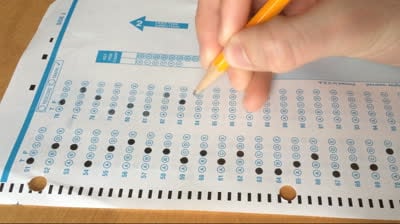
Quick Tip: Bubbling Answers
Strategy xi: Be Ready for Turbulence in Scores
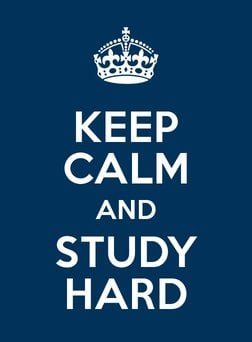
In Overview
Strategy two: Learn to Eliminate 3 Wrong Answers
Strategy 3: Predict the Answer Earlier Reading the Respond Choices
Strategy 4: Experiment with Passage Reading Strategies and Discover the Best for You
Strategy five: Empathize Every Single Mistake You Make
Strategy six: Find Your Reading Skill Weaknesses and Drill Them
Strategy seven: Read the Italicized Passage Introduction
Strategy 8: Be Interested in the Passage Field of study Matter
Strategy 9: DON'T Spend Fourth dimension on Vocab
Strategy 10: Stop With Extra Fourth dimension and Double Cheque
Strategy eleven: Be Ready for Turbulence in Scores What's Next?


Virtually the Author
As co-founder and head of product design at PrepScholar, Allen has guided thousands of students to success in SAT/Act prep and college admissions. He's committed to providing the highest quality resources to help y'all succeed. Allen graduated from Harvard University summa cum laude and earned ii perfect scores on the Sabbatum (1600 in 2004, and 2400 in 2014) and a perfect score on the Act. Y'all can also find Allen on his personal website, Shortform, or the Shortform weblog.
Source: https://blog.prepscholar.com/how-to-get-800-on-sat-reading-10-strategies-by-a-perfect-scorer
0 Response to "Advanced Reading and Writing Practice for Sat"
Post a Comment